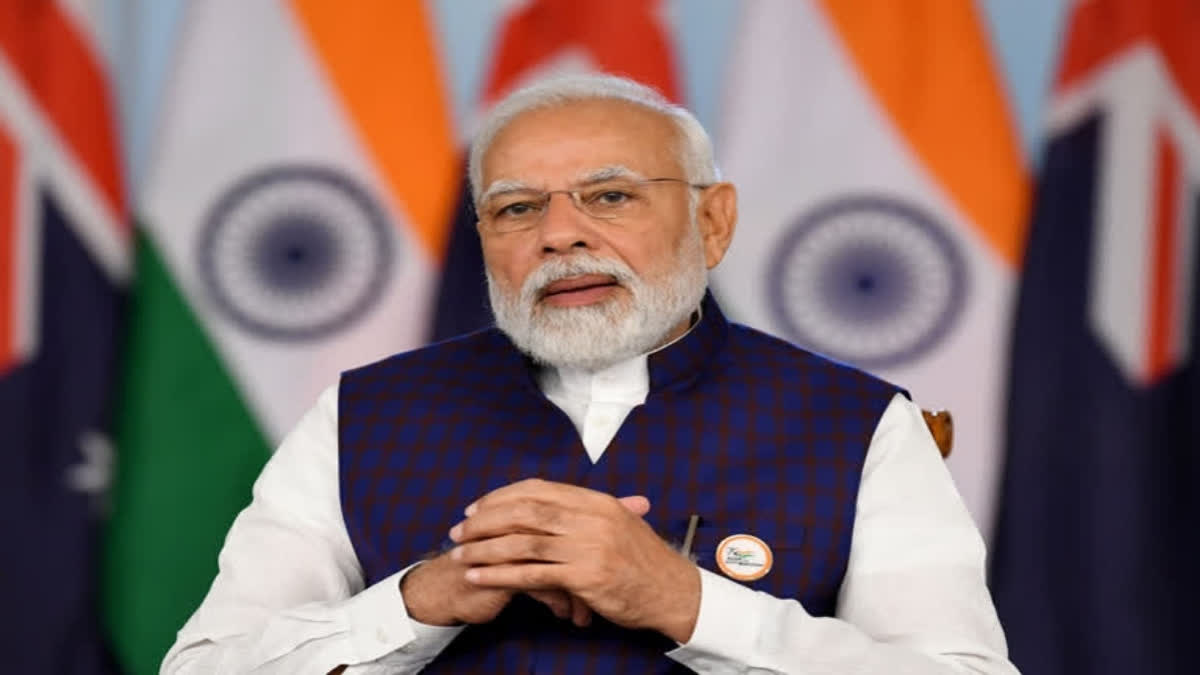New Delhi:As Prime Minister Modi is all set to assume power for the third term, a flurry of crucial overseas trips is on the schedule, with Italy and Switzerland on the itinerary. The Prime Minister is likely to attend the G7 summit in Italy following an invitation from Italy's Prime Minister Giorgia Meloni. The summit is scheduled to take place from June 13-15. Additionally, PM Modi has been invited to the ‘Summit of Peace in Ukraine’ in Switzerland, scheduled from June 15 to 16. This summit aims to foster dialogue and understanding towards a peaceful resolution to the conflict in Ukraine.
The G7 Summit, or Group of Seven Summit, is an annual meeting of leaders from seven of the world's largest advanced economies: Canada, France, Germany, Italy, Japan, the United Kingdom, and the United States. The European Union also participates. The summit serves as a platform for discussing and coordinating economic policies, addressing global challenges, and fostering international cooperation.
What is the agenda of the G7 under Italy?
The European nation’s push to phase out coal-fired power plants by 2025 will be the main topic for discussion at the upcoming G7 Summit. Rome aims to rally support from other G7 members for a common timeline for ending coal use.
Significance of India's participation at the G7
India is not a member of the G7 but has been invited as a guest country several times, reflecting its growing influence in global economic and political affairs. In recent years, India's participation has been increasingly significant. India was invited to the 2023 G7 Summit in Hiroshima, Japan, highlighting its strategic role in global issues. India is a major advocate for climate justice and sustainable development, emphasizing the responsibilities of developed nations. Post-pandemic recovery and global health security are critical areas where India contributes its expertise. India seeks to foster economic ties and cooperation with G7 countries, particularly in technology, infrastructure, and trade. Moreover, India's stance on global peace, and security, and its position in the Indo-Pacific region are crucial topics of discussion. Participation in the G7 allows India to influence global economic and political agendas. It enables India to present its viewpoints on international issues directly to the world's leading economies.
India's active engagement and contributions to global discussions enhance its soft power, portraying it as a responsible and influential global player. The G7 Summit opens avenues for India to attract investment from member countries. It also facilitates the strengthening of trade relations, which can lead to economic growth and job creation. Collaboration with G7 countries can help India gain access to advanced technologies and innovations, particularly in fields like renewable energy, digitalisation, and manufacturing.
By participating in discussions on climate change, India can advocate for climate justice and equitable responsibilities, ensuring that developed nations contribute their fair share to global climate efforts. Engagement with G7 can help India align its policies with global sustainable development goals, fostering long-term environmental and economic sustainability.
